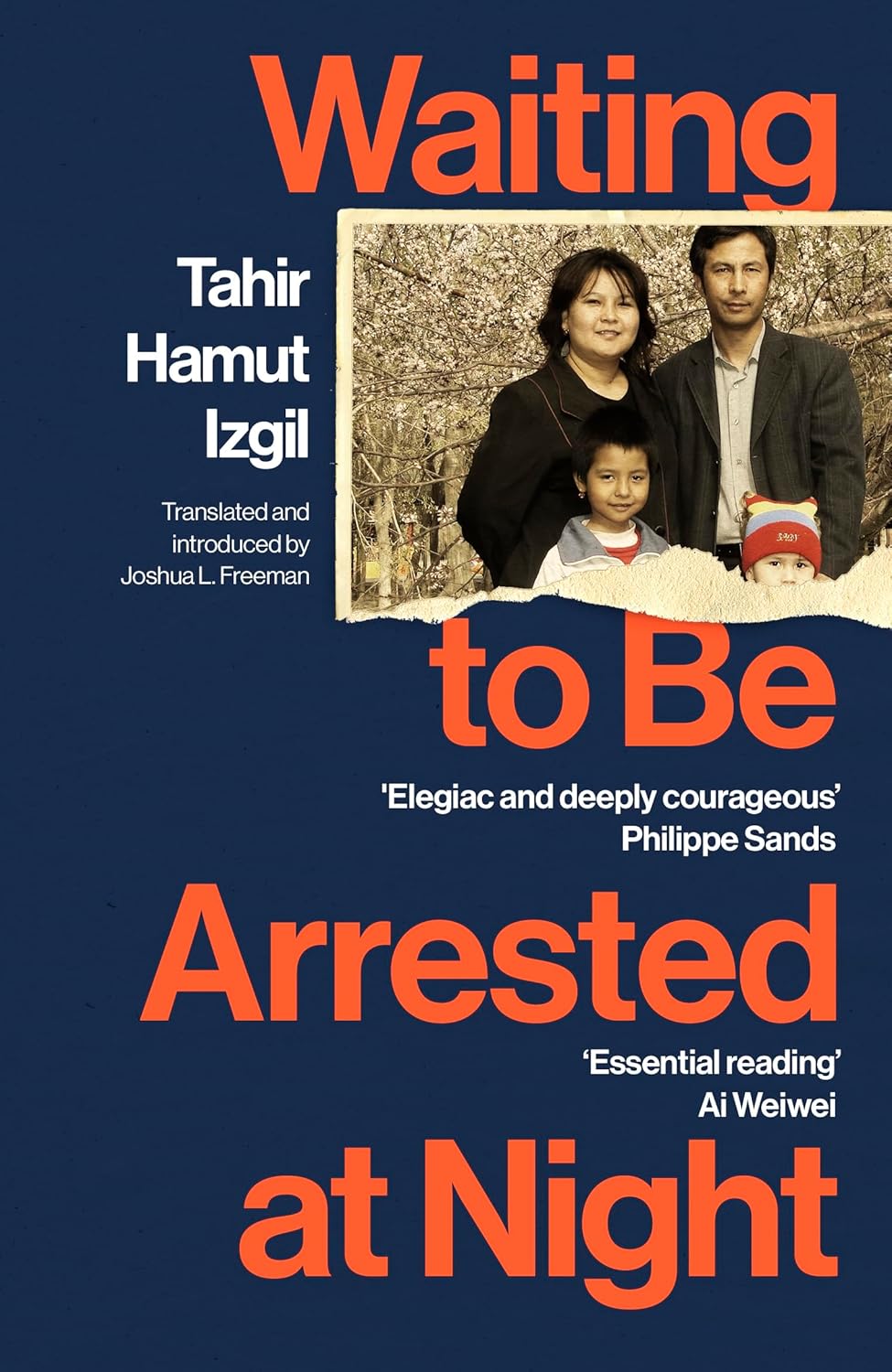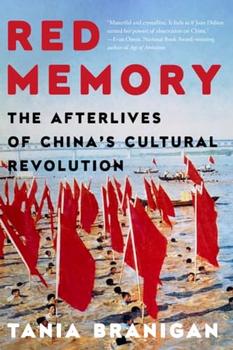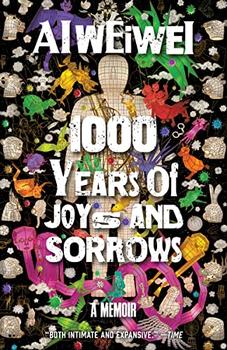Summary | Excerpt | Reviews | Beyond the book | Read-Alikes | Genres & Themes | Author Bio

A Uyghur Poet's Memoir of China's Genocide
by Tahir Hamut IzgilBy now most people have heard of violence taking place in the Xinjiang region of China. But in a 24-hour news cycle and seemingly endless series of crises, the repression of the Uyghur people, a mostly Muslim minority, doesn't often feature prominently in Western priorities. Whether this is due to crisis overload or simple lack of familiarity, Tahir Hamut Izgil's memoir, Waiting to be Arrested at Night, breaks through the complacency and powerfully reveals the terror of mass persecutions tearing an entire population apart.
Izgil is a Uyghur poet, filmmaker and intellectual who was arrested in 1996 when he attempted to travel abroad. He calmly recounts being thrown in prison on phony charges that essentially amounted to traveling while being a Uyghur. This resulted in three years of imprisonment, including time in a labor camp, yet Izgil relates the story as if it were a simple misfortune.
His prison record constantly marked him as a suspect with the authorities, so he was alert to increasing repression his entire adult life. But conditions worsened significantly starting in 2009, after a Uyghur uprising that year protesting discrimination by ethnic Han Chinese (see Beyond the Book). He describes the ever-stricter controls that he and his community were subject to, which ranged from the cruel to the absurd: banning certain Uyghur phrases and names for newborn children; confiscating radios to stifle contact with the outside world; and even a Kafka-esque scenario where Izgil was forced to apologize in writing for a bureaucrat's paperwork error regarding his address.
The situation morphed into something even more sinister, however, and mass arrests of Uyghurs began in 2015. By 2017, the government was ensnaring nearly every family Izgil knew. He describes surveillance tactics that Westerners could only imagine in movies—being called into the police station for facial scans and blood tests, and residents forced to pay for the cameras placed outside their own homes to monitor their movements. Through it all, Izgil remains serene, as does his prose. His poet's voice and lyricism add a dreamlike quality to events that seem too terrifying to be real, and almost too painful to describe.
With countless Uyghurs sent to "study" in re-education centers, i.e., concentration camps, Izgil felt the noose tightening around his own neck. He had taken to preparing shoes and clothes at his bedside in anticipation of a nighttime arrest since they had become so common. He and his wife agreed that fleeing the country with their two daughters was their only option, but obtaining a passport and visa was nearly impossible to achieve as a Uyghur. Only by spending everything they had and feigning an illness needing treatment abroad were they finally able to get their documents in 2017.
Their passports were confiscated right before leaving the country. Reading about the incident feels like watching the twist in a horror movie but even more sickening since it's real. The strokes of luck that allowed him to get the documents back were equally cinematic, and are still told through Izgil's calmly poetic style. He describes how the scene unfolded: "With a swift motion of her hand, she held out two blue slips of paper. I breathed a deep, silent sigh of relief…Marhaba's face opened like a flower."
When they left, they couldn't even tell their loved ones good-bye lest they be tortured by the authorities for having prior knowledge of the escape. Despite having tried to spare those they were close to, they watched helplessly from abroad as their friends and family were arrested. Izgil finishes his story by describing the guilt of leaving, and of surviving, that can't be assuaged by the safety of a new country.
Waiting to be Arrested at Night is a moving and humanizing account of a little-understood tragedy happening far from Western eyes. As such, it's vital reading for anyone seeking to understand the repression in Xinjiang, or the ability of any state to wreak destruction upon its own people.
![]() This review
first ran in the August 23, 2023
issue of BookBrowse Recommends.
This review
first ran in the August 23, 2023
issue of BookBrowse Recommends.

If you liked Waiting to Be Arrested at Night, try these:

by Tania Branigan
Published 2024
An indelible exploration of the invisible scar that runs through the heart of Chinese society and the souls of its citizens.

1000 Years of Joys and Sorrows
by Ai Weiwei
Published 2022
In his widely anticipated memoir, "one of the most important artists working in the world today" (Financial Times) tells a century-long epic tale of China through the story of his own extraordinary life and the legacy of his father, the nation's most celebrated poet.
Your guide toexceptional books
BookBrowse seeks out and recommends the best in contemporary fiction and nonfiction—books that not only engage and entertain but also deepen our understanding of ourselves and the world around us.